DEPARTMENT OF DERMATOLOGY REPORT ANNUAL Fiscal Year 2022

The information presented in this report covers fiscal year 2022 (7/1/2021-6/30/2022) and includes updates relavant to fiscal year 2023.


The information presented in this report covers fiscal year 2022 (7/1/2021-6/30/2022) and includes updates relavant to fiscal year 2023.
Welcome to the second Michigan Medicine Dermatology Annual Report. Whether the Department of Dermatology is your alma mater, your current learning environment, or the place where your career is thriving, we are thrilled to share highlights from 2022 with all of you. This past fall, we already had an opportunity to update many of you during our first Dermatology Alumni Reunion, a tradition we plan to repeat on a biennial basis.
Reflecting on 2022, it is perhaps most appropriately summarized as a year in preparation for the future. With the events of 2020 in our rearview mirror, we focused on optimally positioning ourselves to achieve the aspirations captured in our vision statement: to improve the health of all our patients through compassionate and equitable care, and to advance our collective knowledge by pushing the boundaries of medical science through research and innovation.
In 2022, we took important steps to expand our clinical footprint by opening two new clinic locations in Northville and Ypsilanti. Our presence at the Ypsilanti Health Center provides much needed dermatologic care to communities with historically poor access to high-quality health care. In 2023 and beyond, we look forward to contributing to our institutional mission to serve Michigan and the world through continued growth and partnership within a statewide network.
Within the laboratories of our research faculty, the highly successful University of Michigan Skin Biology and Diseases
Resource-based Center (UM-SBDRC), and our rapidly growing Program for Clinical Research in Dermatology (PCRiD), research in cutaneous biology and disease is flourishing. The achievements of 2022 are instrumental for the future in which we seek to increase research funding (federal, non-federal, and philanthropic), foster our collaborations, grow our research faculty, and continue the success of our UM-SBDRC. The future of science is bright at Michigan Medicine Dermatology!
The training and empowerment of future generations of socially-conscious and passionate leaders in dermatology is one of the most gratifying aspects of our vision and raison d'être. Nothing speaks more to the success of our education than the retention of four out of seven graduating residents in 2022. Additionally, three former residents who built successful careers throughout the country, rejoined us as faculty in 2022.
Thanks to many of you, 2022 has been philanthropically foundational with the establishment of several multiyear gifts to support research, education, and clinical care. Your generosity is both humbling and inspirational.
Finally, we are deeply indebted to Stephanie Zaleski and many others who contributed to the creation of this wonderful report. We hope to see you in 2023. Go Blue!
Chris Bichakjian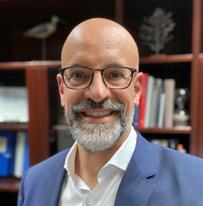
The mission of the Michigan Medicine Department of Dermatology is to advance dermatologic patient care, research, and education, grounded in an unwavering commitment to diversity, equity, and inclusion.
Our vision for the Michigan Medicine Department of Dermatology is committed to improving the health of all our patients through compassionate and equitable care. We strive to advance our collective knowledge by pushing the boundaries of medical science through research and innovation. We aspire to train and empower future generations of socially-conscious and passionate leaders in dermatology, ready to tackle the challenges in our field. We are dedicated to fostering a community that values individual differences and respects diverse talents. At the core of our mission, we acknowledge the sociocultural context in which our work occurs and will work ceaselessly towards promoting diversity and cultivating inclusion.
24 5 4 6

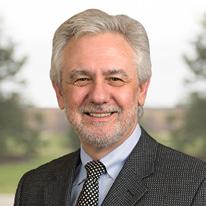
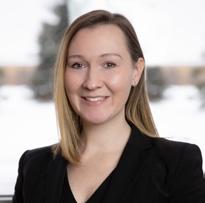
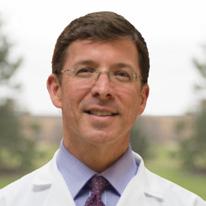
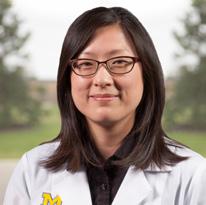
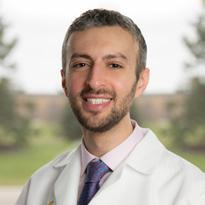
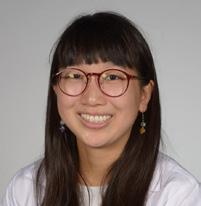
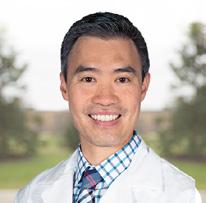 Christopher Bichakjian, MD Department Chair
Milad Eshaq, MD Medical Dermatology Division Chief
Kelly Harms, MD, PhD Cutaneous Surgery and Oncology Division Chief
Jeffrey Orringer, MD Cosmetic Dermatology Division Chief
Andrzej Dlugosz, MD Associate Chair for Research
Frank Wang, MD Associate Chair for Medical Education
Severine Cao, MD Assistant Chair for Diversity, Equity & Inclusion (effective 09/2022)
Kristin Bernstein, MHA Department Administrator
Christopher Bichakjian, MD Department Chair
Milad Eshaq, MD Medical Dermatology Division Chief
Kelly Harms, MD, PhD Cutaneous Surgery and Oncology Division Chief
Jeffrey Orringer, MD Cosmetic Dermatology Division Chief
Andrzej Dlugosz, MD Associate Chair for Research
Frank Wang, MD Associate Chair for Medical Education
Severine Cao, MD Assistant Chair for Diversity, Equity & Inclusion (effective 09/2022)
Kristin Bernstein, MHA Department Administrator
Michigan Medicine Dermatology welcomed new clinical and research faculty throughout the past year and appointed several faculty members to a variety of leadership positions and roles.
To support equitable and inclusive hiring processes for clinical track faculty, the department launched its Faculty Recruitment and Promotion Committee (RPC) in early 2021. Currently led by Dr. Yolanda Helfrich, the RPC is composed of faculty physicians from all ranks on the clinical and tenure track and includes one dermatology house officer. The RPC provides standardized interviews with candidates to better understand their interests and career goals. Following interviews, the RPC provides a summarized assessment based upon input from its members and provides its recommendation to our department Chair.
Severine Cao, MD was recruited as Clinical Assistant Professor of Dermatology in September 2022. Dr. Cao will establish a Skin of Color Clinic as well as provide medical dermatology patient care at UMHS.
Mehrnaz Gharaee-Kermani, PhD was appointed as Assistant Research Scientist in the Departments of Dermatology and Internal Medicine/ Rheumatology. She is a member of the Gudjonsson and Kahlenberg labs.
Julie Mervak, MD was recruited as Clinical Associate Professor of Dermatology in February 2022. Dr. Mervak has established a Nail Disorders Clinic at our Taubman clinic location and serves as M3/M4 Clerkship Director for the department.
Feiyang Ma, PhD was appointed as Assistant Research Scientist in the departments of Internal Medicine/Rheumatology, Computational Medicine and Bioinformatics and Dermatology in December 2021. He is a member of the both Gudjonsson and Kahlenberg labs.
Mio Nakamura, MD was appointed as Clinical Assistant Professor of Dermatology in September 2021. Dr. Nakamura directs the Program for Clinical Research in Dermatology and oversees dermatology clinical trials.
Cindy Parra Geurrero, MD was appointed as Clinical Instructor in Dermatology and is a member of the Cutaneous Surgery and Oncology faculty team.
Elisabeth Pedersen, MD, PhD was appointed as Clinical Instructor in Dermatology. During FY23, she will complete her post-doctoral research training within our NIH funded training program in cell and molecular dermatology.
Olesya Plazyo, PhD was appointed as Research Investigator of Dermatology in the Gudjonsson Lab.
Maya Raiman, MD, MS was recruited as Clinical Assistant Professor of Dermatology in November 2022.
Emily Smith, MD was appointed as Clinical Associate Professor in the Departments of Pathology and Dermatology. She sees patients in the melanoma clinic at the Taubman Center.
Marina Grachtchouk, PhD is Associate Research Scientist of Dermatology.
Yolanda Helfrich, MD is Clinical Professor of Dermatology.
Matthew Patrick, PhD is Research Assistant Professor of Dermatology.
Monique Verhaegen, PhD is Research Associate Professor of Dermatology.
Leslie Fecher, MD is Clinical Professor of Internal Medicine (Medical Oncology) and Professor of Dermatology.
Alexandra Hristov, MD is Clinical Professor of Pathology (Dermatopathology) and Professor of Dermatology.
Mio Nakamura, MD began as Director of the Program for Clinical Research in Dermatology in September 2021.
Allison Darland, MD was appointed as Assistant Program Director for recruitment for the U-M Dermatology Residency Program in May 2022.
Kelly Cha, MD, PhD was appointed as Service Chief for the Department of Dermatology, effective July 1, 2022.
Severine Cao, MD was appointed as Assistant Chair for Diversity, Equity and Inclusion in September 2022.
Doug Fullen, MD, Clinical Professor of Pathology and Clinical Professor of Dermatology retired from the University of Michigan Medical School on June 30, 2022. The Regents of The University of Michigan appointed Dr. Fullen as Emeritus Professor of Pathology.
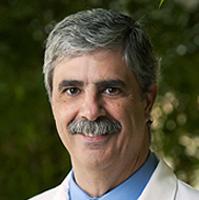
A nationally and internationally recognized expert in dermatopathology, Dr. Fullen was an outstanding teacher to countless medical students, residents and dermatopathology fellows during his career at Michigan Medicine, and was the recipient of departmental teaching awards from the Departments of Dermatology (2002) and Pathology (2006).
Dr. Fullen authored over 130 peer-reviewed papers in top-tier journals in his field, including studies that have advanced the understanding of the molecular underpinnings of melanocytic tumor biology and significantly impacted the clinical management of patients with these tumors. His early publications on BRAF and NRAS mutations in melanocytic tumors, specifically “BRAF and NRAS mutations in melanoma and melanocytic nevi” and “BRAF and NRAS mutations in spitzoid melanocytic lesions,” have been highly cited. A collaboration entitled “Efficient tumor formation by single human melanoma cells” published in Nature was influential in challenging the dogma of the cancer stem cell theory.
Dr. Fullen has delivered numerous invited lectures at national and international meetings. He served as chair of the Mentorship Committee and vice chair of the Ethics Committee of the American Society of Dermatopathology, and held multiple departmental administrative roles at Michigan Medicine. It is with much gratitude for his many contributions to our department’s programs and missions, that we wish Dr. Fullen all the best in his retirement.
Kelly L. Harms MD, PhD, Clinical Associate Professor of Dermatology was appointed as Lewis and Lillian Becker Professor of Dermatology in April 2022. Dr. Harms serves as Chief of the Cutaneous Surgery and Oncology Division and Medical Director of the Mohs Ambulatory Care Clinic. Additionally, she directs the Multidisciplinary Cutaneous Oncology Program at the Rogel Cancer Center and is Assistant Program Director for the Micrographic Surgery and Dermatologic Oncology Fellowship.
An internationally recognized expert in the field of Merkel cell carcinoma (MCC), Dr. Harms’ research focuses on improving diagnosis, prognostication, and management for this rare and aggressive form of skin cancer. She has published over 25 peer-reviewed articles and has presented her work at institutions and conferences throughout the U.S. and abroad. As a member of the National Comprehensive Cancer Network Panel on Non-melanoma Skin Cancer, she is helping to shape national guidelines for the management of complex cutaneous malignancies, including MCC and other high-risk skin cancers.
The Lewis and Lillian Becker Professorship in Dermatology was established through the generosity of Lewis and Lillian Becker to support a Dermatology faculty member engaged in research focusing on skin cancer epidemiology, therapy, education, and biology at Michigan Medicine. Prior holders include Drs. Timothy Johnson and Alison Durham.
Johann Gudjonsson, MD, PhD was named the 2022 Eugene M. Farber Lecturer for the Society for Investigative Dermatology. His presentation at the 2022 SID Annual Meeting was entitled “Has the Riddle of Psoriasis Been Finally Solved – Is it Time to Move On?”
Julie Mervak, MD was selected for the 2022 Journal of the American Academy of Dermatology Editorial Mentorship Program. This program offers training to mid-career faculty in developing critical appraisal and editorial skills to enhance future peer-review service.
Monique Verhaegen, PhD was recipient of the FY22 Research Faculty Recognition Award from the U-M Office of the Vice President for Research. Dr. Verhaegen was honored for her tremendous contributions to the field of skin cancer research at the U-M President's Faculty Awards event in September 2022.
John Voorhees, MD, FRCP was elected as a 2021 fellow of the American Academy for the Advancement of Science and received the U-M MICHR Distinguished Mentorship Award, presented in fall of 2022.
Allison Billi, MD, PhD was appointed as a Taubman Emerging Scholar of the Michigan Medicine Taubman Institute in 2022.

Working in partnership with colleagues at the VA and in industry, Dr. Tejasvi’s project for use of Artificial intelligence to improve skin cancer detection at the VA was awarded 3rd place in the VA’s AI Tech Sprint competition.
Jeffrey Orringer, MD was the recipient of the 2022 Association of Academic Cosmetic Dermatology Elizabeth McBurney Award for Clinical Excellence in recognition of his exceptional contributions to patient care in cosmetic dermatology and demonstrated leadership in clinical innovation.
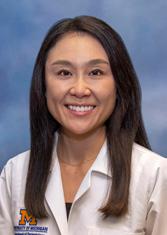

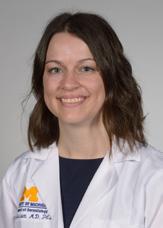
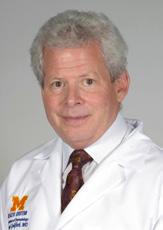
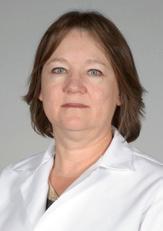
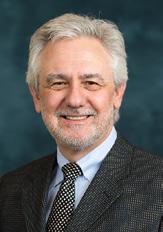
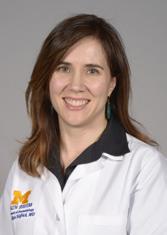

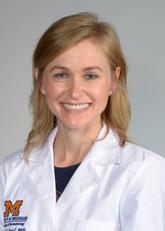
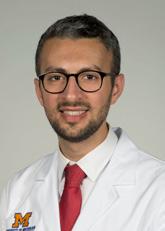
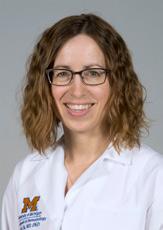
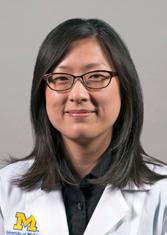

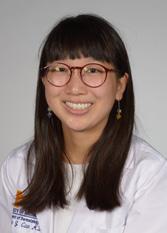
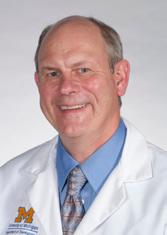
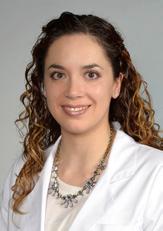
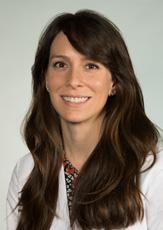



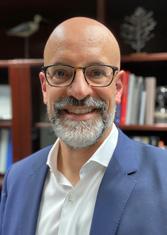

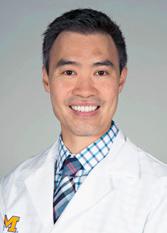
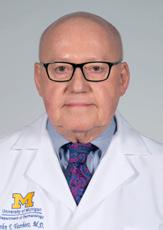
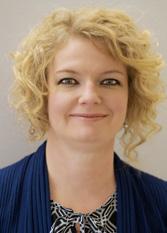

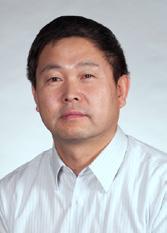
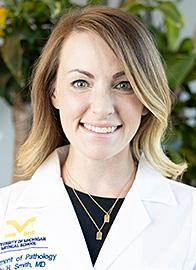
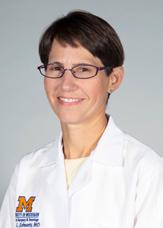






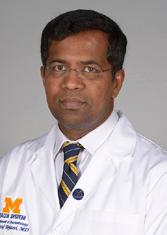

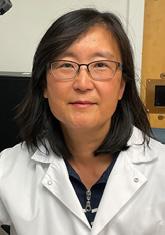
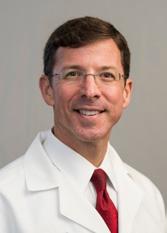 Taihao Quan, MD, PhD Research Professor
Maya Raiman, MD, MS Clinical Assistant Professor
Li-Jyun Syu, PhD Assistant Research Scientist
Jeffrey Orringer, MD Clinical Professor
Sruthi Renati, MD Clinical Assistant Professor
Cindy Parra Guerrero, MD Clinical Instructor
Trilokraj Tejasvi, MBBS, MD Clinical Associate Professor
Elisabeth Pedersen, MD, PhD Clinical Instructor
Mrinal Sarkar, PhD Assistant Research Scientist
Matthew Patrick, MEng, PhD Research Assistant Professor
Jennifer Schwartz, MD Clinical Associate Professor
Lam C. (Alex) Tsoi, PhD Assistant Professor
Olesya Plazyo, PhD Research Investigator
Emily Smith, MD Clinical Associate Professor
Current faculty directory as of January 2023
Monique Verhaegen, PhD Research Associate Professor
John Voorhees, MD Professor
Frank Wang, MD Clinical Associate Professor
Sunny Wong, PhD Associate Professor
Taihao Quan, MD, PhD Research Professor
Maya Raiman, MD, MS Clinical Assistant Professor
Li-Jyun Syu, PhD Assistant Research Scientist
Jeffrey Orringer, MD Clinical Professor
Sruthi Renati, MD Clinical Assistant Professor
Cindy Parra Guerrero, MD Clinical Instructor
Trilokraj Tejasvi, MBBS, MD Clinical Associate Professor
Elisabeth Pedersen, MD, PhD Clinical Instructor
Mrinal Sarkar, PhD Assistant Research Scientist
Matthew Patrick, MEng, PhD Research Assistant Professor
Jennifer Schwartz, MD Clinical Associate Professor
Lam C. (Alex) Tsoi, PhD Assistant Professor
Olesya Plazyo, PhD Research Investigator
Emily Smith, MD Clinical Associate Professor
Current faculty directory as of January 2023
Monique Verhaegen, PhD Research Associate Professor
John Voorhees, MD Professor
Frank Wang, MD Clinical Associate Professor
Sunny Wong, PhD Associate Professor

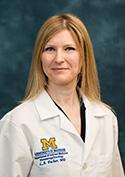

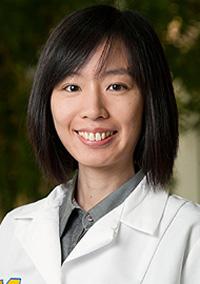


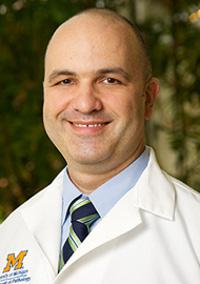


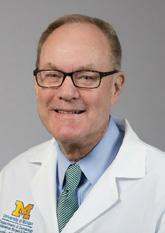

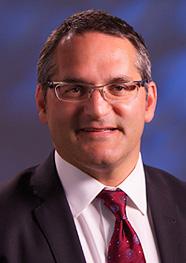
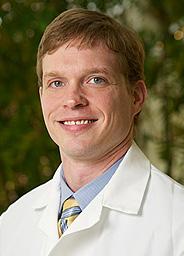
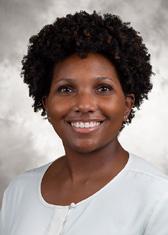

Current faculty directory as of January 2023

 Erica Stevens, MD Adjunct Physician Instructor Dermatology
Aleodor Andea, MD Clinical Professor Pathology
Paul Harms, MD, PhD Clinical Associate Professor Pathology
John Varga, MD Professor Internal Med. (Rheumatology)
Christina Angeles, MD Assistant Professor Surgery (Surgical Oncology)
J. Michelle Kahlenberg, MD, PhD Associate Professor Internal Med. (Rheumatology)
Scott Bresler, MD, PhD Clinical Assistant Professor Pathology
May Chan, MD Clinical Professor Pathology
Alexandra Hristov, MD Clinical Professor Pathology
Timothy Johnson, MD Professor Emeritus Dermatology
Leslie Fecher, MD Clinical Professor Internal Med. (Medical Oncology)
Christopher Lao, MD Professor Internal Med. (Medical Oncology)
Pierre Coulombe, PhD Professor Cell & Developmental Biology
Lori Lowe, MD Clinical Professor Pathology
Nazy Gharaee-Kermani, MPH, PHD, DVM Assistant Research Scientist Internal Med. (Rheumatology)
Feiyang MA, PhD Assistant Research Scientist Internal Med. (Rheumatology)
Rajiv Patel, MD Clinical Professor Pathology
Erica Stevens, MD Adjunct Physician Instructor Dermatology
Aleodor Andea, MD Clinical Professor Pathology
Paul Harms, MD, PhD Clinical Associate Professor Pathology
John Varga, MD Professor Internal Med. (Rheumatology)
Christina Angeles, MD Assistant Professor Surgery (Surgical Oncology)
J. Michelle Kahlenberg, MD, PhD Associate Professor Internal Med. (Rheumatology)
Scott Bresler, MD, PhD Clinical Assistant Professor Pathology
May Chan, MD Clinical Professor Pathology
Alexandra Hristov, MD Clinical Professor Pathology
Timothy Johnson, MD Professor Emeritus Dermatology
Leslie Fecher, MD Clinical Professor Internal Med. (Medical Oncology)
Christopher Lao, MD Professor Internal Med. (Medical Oncology)
Pierre Coulombe, PhD Professor Cell & Developmental Biology
Lori Lowe, MD Clinical Professor Pathology
Nazy Gharaee-Kermani, MPH, PHD, DVM Assistant Research Scientist Internal Med. (Rheumatology)
Feiyang MA, PhD Assistant Research Scientist Internal Med. (Rheumatology)
Rajiv Patel, MD Clinical Professor Pathology
Our clinic teams adapted to a new normal for clinical practice and typical patient volumes while navigating fluctuations in policy requirements and staffing levels resulting from the resurgent pandemic.
Divisions
Cosmetic Dermatology
Cutaneous Surgery and Oncology
Medical Dermatology
Clinic Locations
Brighton Center for Specialty Care
Dexter Health Center
Domino’s Farms
Mott Children’s Hospital
Northville Health Center
Rogel Cancer Center
Taubman Center
Veteran’s Affairs Ann Arbor Healthcare System
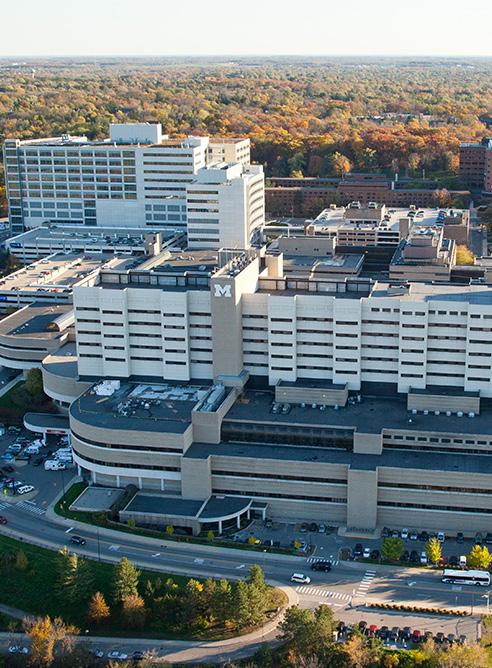
Ypsilanti Health Center
48,489
17,194
8,401
Patient Visits New Patient Visits Virtual Visits
(includes Video Visits, E-Visits, and E-Consults)
In FY22, as part of the department’s Practice Optimization Initiative (POI), our medical dermatology division implemented a more robust subspecialty clinic model. This new model aims to enhance patient care/specialized services and education, as well as facilitate recruitment for disease-based clinical research and drug trials. We have added new subspecialty clinics for nail disorders, alopecia, hidradenitis suppurativa and follicular disorders and will soon be adding skin of color and inflammatory disease clinics to complement our established subspecialty clinics.
Dr. Milad Eshaq, Chief of Medical Dermatology, worked closely with our clinical administrative team, to lead development of a diagnosis-based scheduling approach used in new decision tree algorithms, grid refinements and scheduling standards, as well as a more streamlined integration of virtual care. In December 2021, following months of planning and preparation, medical dermatology launched new decision trees for scheduling, updated appointment grids, and new visit types. In preparation for implementation, clinical administrative and call center staff worked diligently behind the scenes to align patient appointments to the new grids. In addition, our physicians, PAs and clinic staff showed remarkable teamwork, patience and resilience while navigating multiple changes to our scheduling processes and grid functionalities to help ensure success.
To better assist with our patients’ prescription needs, we have partnered with the U-M Department of Pharmacy to streamline the prior authorization process for specialty medications and have dedicated three staff to supporting this work. In response to limited availability of inpatient beds at the U-M University Hospital, dermatology clinic leadership has partnered with colleagues at Michigan Medicine to shift more care of patients with severe inflammatory skin disease to our outpatient Dermatology Treatment Center for modified Goeckerman treatment. We continue to partner with colleagues in Emergency Medicine to identify opportunities for improved access at all levels.
Patient access to medical dermatology appointments has been variable during FY22, requiring flexible scheduling approaches, such as autoconverting unfilled available procedure, urgent and specialty slots into general dermatology slots. In addition, we developed an innovative way to use a waitlist system to refill late cancellations. Our virtual care video and e-visit options remain popular among patients with volume doubling year over year. We have recruited multiple new clinical faculty and a new PA to assist with access improvement in the coming year and have recently expanded our medical dermatology practice to locations in Northville and Ypsilanti.
Led by Dr. Jeffrey Orringer, our Cosmetic Dermatology and Laser Center had its highest patient census ever in FY22. This growth was fueled by new services added, such as platelet rich plasma injections for treatment of androgenetic alopecia, by Dr. Milad Eshaq’s successful expansion into cosmetic dermatology practice and by our pediatric dermatology team’s laser cases having been successfully incorporated into the CDLC practice setting.


In recent years, our faculty have worked to enhance training in cosmetic dermatology, steadily expanding didactic sessions and hands-on learning opportunities for dermatology residents to perform cosmetic procedures.

Our Mohs surgeons were among the first to become board-certified in Micrographic Dermatologic Surgery (MDS) with the inaugural MDS certification exam in October of 2021.
Led by Dr. Kelly Harms, the division of Cutaneous Surgery and Oncology (CSO) implemented a new comprehensive scheduling process utilizing “decision trees” as a part of the U-M Medical Group’s Practice Optimization Initiative. The process streamlines scheduling and has been successfully utilized in 80% of scheduled appointments.


In January 2022, the division hired Roberta Misko, PA-C, to increase access for initial clinical consultations for patients with diagnosed skin cancers that may require surgery with our dermatologic surgeons. We also welcomed Dr. Emily Smith (Clinical Associate Professor Pathology and Dermatology) in June 2022. Dr. Smith provides care for patients with melanoma and high-risk cutaneous oncology, as well as practices dermatopathology.
Dr. Cindy Parra completed her ACGME fellowship in Micrographic Surgery and Dermatologic Oncology (MSDO) and will gain advanced experience during a second fellowship year as Clinical Instructor in Dermatology during FY23. In July, we welcomed Dr. Mallory Joseph (Class of ‘22) as a new MSDO Fellow and Dr. Beth Pedersen (Class of ‘22) as Clinical Instructor of Dermatology, who will provide patient care within our Multidisciplinary Cutaneous Oncology Program.
CSO team members have shown unwavering commitment to Michigan Medicine’s core values: Caring Teamwork, Innovation, Integrity and Inclusion. The CSO team is actively recruiting clinical staff and faculty who share these goals to provide patient access to high-quality, compassionate care for high-risk skin cancers.
Our CSO faculty remain committed to cultivating our trainees’ surgical skills and continue to expand opportunities for hands-on dermatologic surgery training.
Dr. Jennifer Mancuso is leading expansion of the department’s pediatric dermatology patient care and clinical training programs at C. S. Mott Children’s Hospital. In addition to office visits scheduled three days per week, Dr. Mancuso supplies monthly virtual care video visits and pulsed-dye laser therapy for pediatric dermatology patients. As an active member of the U-M Vascular Anomalies Program, she participates in multidisciplinary care for pediatric patients with complex vascular anomalies.
Working in rotation with Drs. Cao and Eshaq on the dermatology inpatient service, Dr. Mancuso also supplies consultative care for pediatric patients to admitted Michigan Medicine’s hospitals and emergency department. Starting in late 2022, Dr. Mancuso will staff a new quarterly, pediatric dermatology-rheumatology clinic supporting interdisciplinary care for pediatric patients with juvenile dermatomyositis, lupus, vasculitis, and other inflammatory and autoimmune conditions.
Dr. Mancuso is an active educator who provides pediatric dermatology training to pediatric residents completing their allergy rotation and to Allergy/Immunology fellows, as well as to dermatology residents and clerkship medical students rotating with her at Mott. In exciting news, initial work has begun to establish a new pediatric dermatology fellowship at Michigan Medicine in 2024, supporting future growth of our pediatric dermatology program.
During FY22, the VA Ann Arbor Dermatology Service’s patient care and clinical training programs largely returned to pre-pandemic clinic volumes and activities. At the same time, teledermatology consults at the VA had their highest volume in over seven years. Dr. Trilokraj Tejasvi, Service Chief of Dermatology at the VA Ann Arbor, credits the success of the VA teledermatology program to efficient workflows, advantages offered by dermoscopy in diagnosing benign lesions, and expanded residency training in teledermatology and dermoscopy.

In work completed with General Dynamics Information Technology (GDIT) and colleagues at the VA, Dr. Tejasvi helped create a new model of virtual care platform to speed up skin cancer detection for veterans living in remote and rural areas. Using artificial intelligence (AI) this platform instantly analyzes images of skin lesions, and notifies local medical staff while the patient is still on site when an image is clinically helpful or must be retaken. This AI use won third place in the VA’s annual AI Tech Sprint competition.
In early 2023, Dr. Mari Paz Castanedo Tardan, VA Site Director for the U-M Dermatology Residency Program, will step down as faculty to undertake MSDO fellowship training at Michigan Medicine. In addition, in early 2023, Dr. Sruthi Renati will start a procedural clinic at the VA.
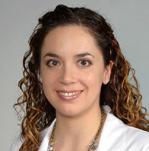
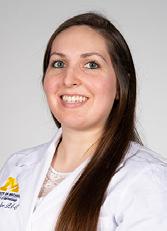



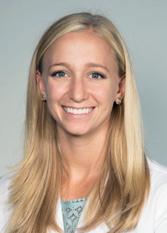

The Department’s resident education program continues to flourish under the leadership of Drs. Helfrich, Darland, and Wang,, along with a truly outstanding and dedicated group of faculty educators. This past academic year, the focus remained on navigating pedagogy on digital platforms during covid, enhancing and improving DEI in dermatology education, and creating innovative content to create the most robust learning environment possible.
Every July the transition from the previous academic year to the new academic year brings many changes, and while we wished our graduating residents well and best of luck as they prepared for the Boards, we also welcomed the new resident class. Our resident cohort of 24 continues to be one of the largest programs in the country, and we are currently ranked in the top 10 dermatology residencies (doximity.com/residency/). As in previous years, the new residents went through Boot Camp, where they had the chance to practice suturing, biopsies, ED&C, kenalog injections, KOH, cryotherapy, and the total body skin exam. The secondyear residents also ran the Primer Series imparting high-yield, clinical pearls and tips for navigating their first few weeks at U-M Dermatology.
Invited speakers continue to be a critical component of augmenting our curriculum, in particular for DEI, but also in adjacent fields such as rheumatology. This year we had speakers on a variety of subjects including: LGBTQ+ Dermatology; dermatologic conditions in pediatric patients with skin of color; emotional intelligence; suicide prevention and mental health awareness; scleroderma; and, the skin findings in child physical abuse. Alums Dr. Roberta Del Campo and Dr. Aliya Hines returned to speak on their own career paths as part of the popular Careers in Derm Series. Our MLK Visiting Professor, Dr. Jenna Lester gave a talk on Beyond the Diagnosis. And our DEI Pipeline Visiting Professor gave a talk on Skin of Color: Where are we, where are we going?
Internal DEI efforts continue to be strong as well, and this year our AntiRacism Book Club discussed: anti-Asian racism: how it manifests and what we can do to be better allies; the intended purpose and potential misuse of the Fitzpatrick scale; Public housing and social determinants of health; and, we held a special session on Patient-Initiated Harassment Training with Drs. Fraely, Sheffield, and Houchens. This session involved learning and implementing bystander interventions which were practiced virtually with standardized patients
Perhaps the most innovative and exciting expansion of our curriculum this year was the Nail and Flaps Cadaver Workshop. Led by Dr. Julie Mervak, spearheaded by Dr. Eric Schadler, and made possible by allocation from the Garbose Family Resident Education Fund, our department had its first cadaver workshop in known department history. In coordination with the Anatomical Donations Program, this innovative workshop gave residents the opportunity to practice a variety of nail procedures on cadavers, including: distal digital blocks, avulsion techniques, and biopsies. To best utilize the anatomical donations, a simultaneous Flaps Workshop was led by Dr. Cindy Parra, where she reviewed basic flaps, including: practice visualizing the cutting and movement of skin, cutting the flaps, and suturing. Given the very high educational value of this dual workshop, we are hoping to continue it in future years.
Follow
instagram.com/umichderm

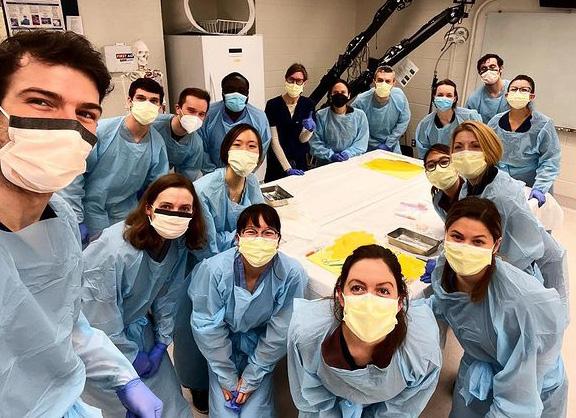
All lectures were conducted virtually on Zoom
Martin Luther King Jr. Visiting Professor: Jenna Lester, MD, Assistant Professor of Dermatology UCSF School of Medicine: “Beyond the Diagnosis”
Dermatology Pipeline Program Visiting Professor: Andrew F. Alexis, MD, MPH, Professor of Clinical Dermatology, Weill Cornell Medical College: “Skin of Color: Where are we, Where are we going?”
Candrice R. Heath, MD, FAAP, FAAD, Assistant Professor of Dermatology, Lewis Katz School of Medicine, Temple University: “Approach to Common Dermatologic Disorders in Pediatric Patients with Skin of Color”
Aliya Courtney Hines, MD, PhD, MSc, FAAD, Assistant Professor of Dermatology, Wayne State University School of Medicine: “The Peripatetic Dermatologist: Stories of a Road Less Traveled”
Guest Lecturers
All lectures were conducted virtually on Zoom
Jeffrey Sanchez-Burks, PhD, William Russell Kelly Professor of Business Administration, University of Michigan Ross School of Business: “Professional Development: Relational mindfulness/emotional intelligence workshop”
Kelcey J. Stratton, PhD, Clinical Assistant Professor of Psychiatry, University of Michigan: “Wellness: Suicide Prevention and Mental Health Awareness”
David Roofeh, MD, Assistant Professor of Internal Medicine (Rheumatology), University of Michigan Medical School: “ANA Spectrum Disorders: Systemic Scleroderma”
Bethany Mohr, MD, FAAP, Clinical Associate Professor of Pediatrics, University of Michigan Medical School: “Skin Findings and Child Physical Abuse”
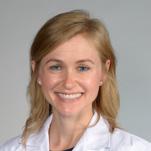

Luke Fraley, MD, Chief Resident, Internal Medicine (Hematology/Oncology);
We are committed to increasing diversity within our residency program and have established a resident selection committee comprising several faculty who work together to holistically evaluate all applications we receive. In FY21 we matched with three of eight residents candidates who identify as underrepresented in medicine (URM) and in 2021-2022, we matched with four of eight residents who identify as URM.
Nathan Houchens, MD, Associate Professor of Internal Medicine (Hospitalist Medicine); Virginia Sheffield, MD, Assistant Professor of Internal Medicine (Hospitalist Medicine): “Patient-Initiated Harassment Training”
Nathan Vengalil, MD, Resident, Dermatology, Washington University School of Medicine St. Louis: “Sexual & Gender Minority Care in Dermatology: Gay & Lesbian Patients; Transgender Patients”
Roberta Del Campo, MD, Del Campo Dermatology & Laser Institute Miami, FL: “Careers in Dermatology”
 Yolanda Helfrich, MD Program Director
Allison Darland, MD Assistant Program Director
Frank Wang, MD Assistant Program Director
Yolanda Helfrich, MD Program Director
Allison Darland, MD Assistant Program Director
Frank Wang, MD Assistant Program Director

The University of Michigan Department of Dermatology hosted its annual Michigan Dermatological Society meeting on Wednesday, April 27, 2022, featuring Amit G. Pandya, MD, as our keynote speaker. Held as a virtual event, Dr. Pandya’s keynote address, “Challenges in Achieving Diversity in Dermatology,” highlighted the barriers underrepresented minority medical students face when matching into dermatology.
We heard innovative lectures from faculty members Allison Billi, MD, PhD and Milad Eshaq, MD, and resident physicians Andrew Sauvageau, MD and Eric Schadler, MD. In addition, notable patient cases were presented by residents physicans Stephen Ansah-Addo, MD; Rachel Fayne, MD; Sara Fossum, MD, PhD; Kelly Reynolds, MD; and Kate Leonard, MD.
Three University of Michigan Dermatology residents earned outstanding honors in the Michigan Dermatological Society (MDS) 2022 Resident Research Competition. Congratulations to Drs. Severine Cao, Grace Hile, and Beth Pedersen who were all honored for their research by the MDS, and presented their research at the MDS Annual Meeting on May 18, 2022.
Titles of the award winning U-M Dermatology research presentations are included below:
• Severine Cao, MD, PGY-4: “The Clinical and Prognostic Significance of Dysphagia in Dermatomyositis Patients”
• Grace Hile, MD, PGY-4: “Lesional and Non-Lesional Dermatomyositis Keratinocytes Share IFN Signature with Lupus but Display Distinct Pathway Phenotypes”
• Elisabeth Pedersen, MD, PhD, PGY-4: “Investigating Mechanisms that Regulate Pigmentation in Basal Cell Carcinoma”
Kudos to U-M Dermatology Resident, Dr. Stephen Ansah-Addo who stepped up to assist a fellow-passenger on United Airlines Flight 997, when she went into premature labor during an 11+hour flight from Ghana to Washington D.C. on Sunday, January 30, 2022.
Dr. Ansah-Addo, together with two nurses (one a fellow-passenger from Ohio, the other a United flight attendant) assisted with the delivery of a healthy baby boy, who was born mid-flight at 34,000 feet. “This is the reason why you go into medicine, to help people,” Dr. Ansah-Addo told ABC News.
News of the special delivery has spread quickly, reported by news outlets across the U.S. and the world. Many congratulations to the new mother, and to Dr. AnsahAddo and to all on United 997 who shared in this remarkable experience!
Dr. Stephen Ansah-Addo received an American Academy of Dermatology (AAD) Presidential Citation “in recognition of his medical wherewithal when he helped to deliver a baby during a trans-Atlantic flight from Ghana to the US in January.”
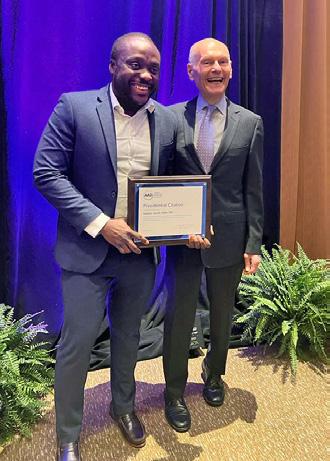
In FY22, we worked with residents to establish a Resident Wellness Committee, which has hosted several departmentally-sponsored wellness events, including group outings, MiChart tips, and financial advising.
Some highlights from wellness and social residency-led activities from the past year include apple picking, ice cream socials, curling, flower arrangement classes, and financial planning lectures.


In FY23, in addition to similar activities, the committee organized a department-wide softball and kickball teams, and started the year off with a resident-hosted summer BBQ.


A main goal of the Wellness Committee this year is to provide outlets for residents to connect with one another as well with other members of our department, which includes faculty-resident dinners and gatherings for throughout the holilday season.
We are excited that we have a forum for residents to provide feedback and lead initiatives that will continue to make improvements on resident wellness.

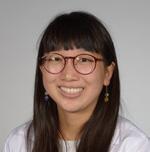

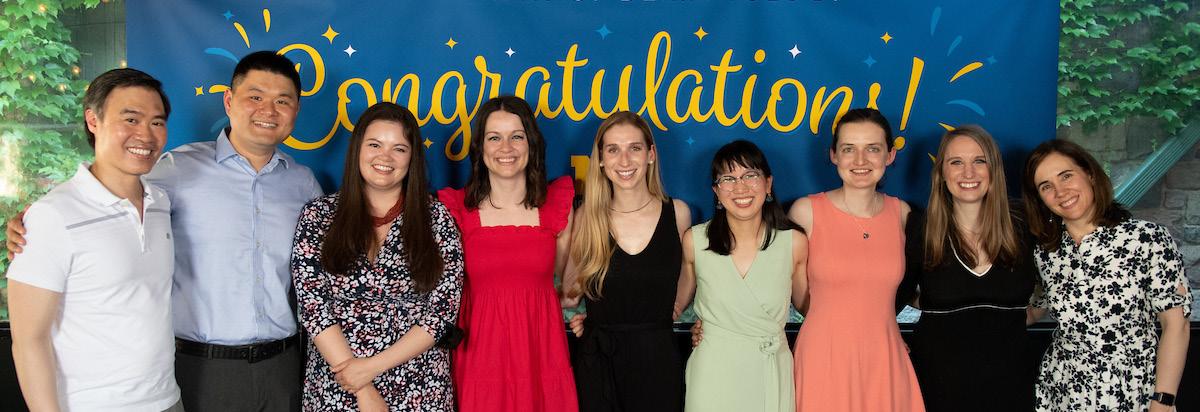
Co-Chief Residents:
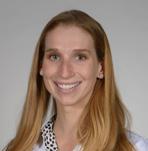


The Department of Dermatology hosted a reception for our resident graduates and their families on Thursday, June 16, 2022 at the Gandy Dancer restaurant in Ann Arbor.
 Severine Cao, MD Assistant Professor of Dermatology University of Michigan Medical School Ann Arbor, MI
Natalie Matthews, MD Dermatology Faculty Henry Ford Health Detroit, MI
Beth Pedersen, MD, PhD Clinical Instructor of Dermatology and T32 Research Fellow University of Michigan Medical School Ann Arbor, MI
Bo Wang, MD, PhD Private Practice South Dakota
Sara Fossum, MD, PhD Assistant Professor of Dermatology University of Michigan Medical School Ann Arbor, MI
Julie Gessler, MD Private Practice Kalispell, MT
Mallory Joseph, MD Mohs Micrographic Surgery & Dermatologic Oncology Fellowship University of Michigan Medical School Ann Arbor, MI
Pictured above: Drs. Frank Wang, Bo Wang, Natalie Matthews, Sara Fossum, Mallory Joseph, Severine Cao, Julie Gessler, Elisabeth Pedersen, Yolanda Helfrich
Severine Cao, MD Assistant Professor of Dermatology University of Michigan Medical School Ann Arbor, MI
Natalie Matthews, MD Dermatology Faculty Henry Ford Health Detroit, MI
Beth Pedersen, MD, PhD Clinical Instructor of Dermatology and T32 Research Fellow University of Michigan Medical School Ann Arbor, MI
Bo Wang, MD, PhD Private Practice South Dakota
Sara Fossum, MD, PhD Assistant Professor of Dermatology University of Michigan Medical School Ann Arbor, MI
Julie Gessler, MD Private Practice Kalispell, MT
Mallory Joseph, MD Mohs Micrographic Surgery & Dermatologic Oncology Fellowship University of Michigan Medical School Ann Arbor, MI
Pictured above: Drs. Frank Wang, Bo Wang, Natalie Matthews, Sara Fossum, Mallory Joseph, Severine Cao, Julie Gessler, Elisabeth Pedersen, Yolanda Helfrich
The Dermatology Residency Class of 2022 honored Dr. Mari Paz Castanedo Tardan with the William B. Taylor Resident Teaching Award for Best Resident Educator.
“Dr. Castanedo goes the extra mile for patient care and resident education, providing patients with the highest standard of care, while also ensuring residents learn as much as possible each day in clinic,” the graduating class said.
“She is also an amazing mentor, spending countless hours advising us about our personal growth and careers. We have all benefited from her wise words, derm-related or not. Thank you Dr. Castanedo for all that you do, you are a true gem and we are lucky to have you here at UM!”
The 2022 residency program graduation reception was our first traditional in-person graduation reception since 2019.
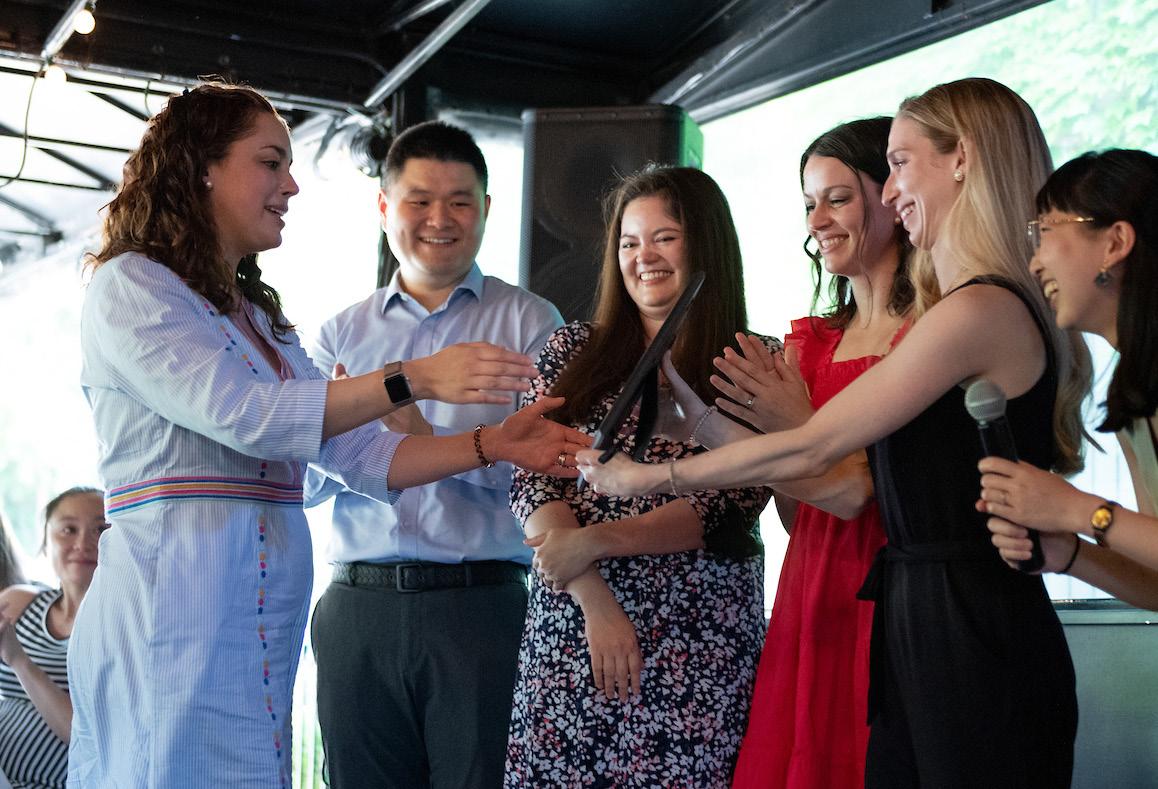

Held as a “hybrid” event, the ceremony was also live-streamed on Zoom allowing clinical colleagues, friends and family to attend the celebration remotely.
 Pictured left: Dr. Yolanda Helfrich; Pictured right: Dr. Chris Bichakjian
Pictured left: Dr. Yolanda Helfrich; Pictured right: Dr. Chris Bichakjian
Kathryn Leonard, MD MD: University of Chicago Pritzker School of Medicine
PGY-1: University of Chicago
Alison Lee, MD, MHS MD: Yale University School of Medicine
PGY-1: Northwell Health
Eric Schadler, MD MD: University of Chicago Pritzker School of Medicine
PGY-1: University of Chicago
Rebecca Nguyen, MD MD: University of Michigan Medical School


PGY-1: University of California San Diego
Naomi Briones, MD MD: University of Michigan Medical School
PGY-1: St. Joseph Mercy Hospital
Andrew Sauvageau, MD MD: SUNY at Buffalo School of Medicine
PGY-1: Riverside Community Hospital
Grace Hile, MD MD: Southern Illinois University School of Medicine
PGY-1: St. Mary Mercy Hospital
Andrew Schuler, MD MD: University of Michigan Medical School





PGY-1: Beaumont Hospital Dearborn
Stephen Ansah-Addo, MD MD: Albert Einstein College of Medicine of Yeshiva University

PGY-1: Montefiore New Rochelle Hospital
Daniel Cole, MD MD: Wayne State University School of Medicine
PGY-1: St. Joseph Mercy Hospital
Rachel Fayne, MD MD: University of Miami Miller School of Medicine

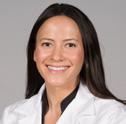
PGY-1: Holy Cross Hospital
Jane Harrell, MD MD: University of Florida College of Medicine
PGY-1: Atrium Health Carolinas Medical Center
Daniel Nadelman, MD MD: University of Michigan Medical School
PGY-1: Northwell Health Mather Hospital
Madison Ratycz, MD MD: University of Toledo College of Medicine


PGY-1: Mercy Health St. Vincent Medical Center
Kelly Reynolds, MD MD: University of Cincinnati College of Medicine
PGY-1: Kettering Medical Center
Mason Runge, MD

MD: University of Michigan Medical School
PGY-1: Spartanburg Regional Healthcare System
Amanda Shepard-Hayes, MD MD: University of Michigan Medical School



Residency: Pediatrics, The Children’s Hospital of Philadelphia

Amanda Arreola, MD


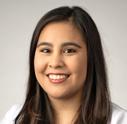
MD: University of Texas Rio Grande School of Medicine
PGY-1: University of Texas Rio Grande School of Medicine
Joseph Durgin, MD
MD: University of Pennsylvania Perelman School of Medicine
PGY-1: University of Pittsburgh Medical Center
Giselle Guerrero, MD
MD: University of Texas Health Science Center San Antonio
PGY-1: University of Texas Health Science Center San Antonio
Thomas Hester, MD
MD: University of Michigan Medical School
PGY-1: Wayne State University School of Medicine
Margaret Lang Houser, MD MD: Mayo Clinic Alix School of Medicine
PGY-1: UnityPoint Health
Anne Ning, MD MD: Case Western Reserve University School of Medicine


PGY-1: University of Cincinnati Medical Center
Residency Class of 2026, starting July 2023
Daniel Wenzel, MD



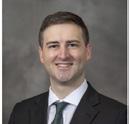
MD: University of Massachusetts Medical School
PGY-1: Signature Healthcare Brockton Hospital
Eric Bowman, MD MD: Howard University College of Medicine
Orlando Martinez Luna, MD MD: University of Texas Southwestern Medical School

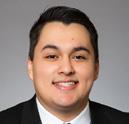


Tran Do, MD, PhD
MD: UCLA David Geffen School of Medicine
Ramon Govea, MD MD: Pennsylvania State University of Medicine
Olivia Lee, MD MD: Virginia Commonwealth University School of Medicine


John Runge, MD, PhD MD: University of Michigan Medical School
Kathie Velez, MD MD: Kirk Kerkorian School of Medicine at UNLV
Albert Yang, MD MD: University of Illinois College of Medicine
In early 2022, Dr. Christopher Bichakjian returned as Program Director for the Micrographic Surgery and Dermatologic Oncology (MSDO) Fellowship.
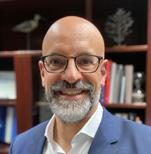
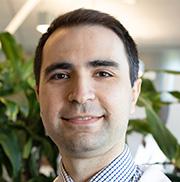
Dr. Cindy Parra completed her ACGME fellowship in Micrographic Surgery and Dermatologic Oncology (MSDO) and will gain advanced experience during a second fellowship year as Clinical Instructor in Dermatology during FY23. Dr. Parra will be supported by strong mentors as she develops enhanced skill, knowledge and experience as a Mohs surgeon and CSO educator.

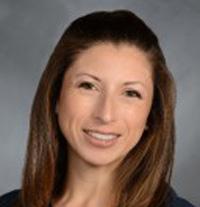
In December 2021, Dr. Mallory Joseph (class of 2022) matched to our MSDO fellowship program for training starting July 2022.
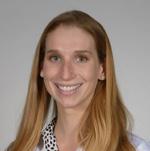
Based in the Department of Pathology the U-M Dermatopathology Clinical Fellowship is directed by Dr. May Chan
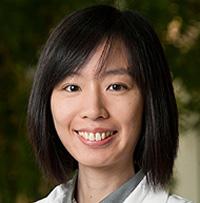
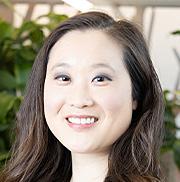
During this one-year ACGME-accredited dermatopathology fellowship, pathology-trained fellows will be provided with exposure to a broad range of clinical dermatology, and dermatology-trained fellows will be provided with a broad exposure to general surgical pathology as it relates to dermatopathology.

’21-’22 academic year
Our preclinical education continues to fall at the end of the M1 year and the beginning of the M2 year. This year, Dr. Frank Wang and our M1 faculty worked with the Education Production Team (EPT), to update our lectures for the virtual sphere. The EPT is a pilot program with the goal of creating the highest quality digital content to facilitate visual learning and reduce extraneous cognitive burden, and is led by 3 Internal Medicine faculty members, Drs. Dan Cronin, David Mack, and Emily Abdoler. Our faculty met individually with the EPT to collaborate on visual changes and any content changes, which were then completed by professional medical illustrators, animators, and videographers. The result is not just higher quality video than what can be recorded over Zoom, but high-resolution content that facilitates learning through digital media. As most lectures throughout the entire Scientific Trunk (M1 year in the curriculum redesign) will continue to be recorded and viewed asynchronously by students, having high quality digital content has become more and more important.

In the fall of 2021, we once again taught the M2 students during their TTC – Transition to Clerkships, a several weeks long course meant to launch them onto the wards. For the first time since before the pandemic, our faculty returned to the classrooms to teach the students in person. And despite dealing with problematic AI from very recent tech upgrades, and flooding (thanks to the gorgeous fall weather in Michigan), the sessions were very successful at teaching students how to logically approach a patient presenting with a rash.
The M2 content continues to have an innovative pedagogical approach, providing students with an algorithmic approach to diagnosing and treating patients with complex dermatologic conditions.
Dr. Julie Mervak took over as the M3/M4 Clerkship Director in early 2022, after rejoining our department. Dr. Mervak completed her education at Michigan as Chief Resident before taking a position at UNC Chapel Hill, where Dr. Mervak was a leader in education. Dr. Mervak has been a strong mentor and advisor for our clinical students, organizing research interests and efforts, holding mock interviews, and providing oneon-one teaching in her independent clinics. Interest from the M3/M4 students in dermatology continues to be very high, and we anticipate their interest will continue to flourish under her leadership.

As our educational program continue to have a strong focus on DEI, we were excited to see the Pipeline Program expand to include 18 new U-M medical student mentees this year. Such a large cohort was difficult to manage, but our residents and faculty rose to the challenge so that no students were excluded from the program. Vaccines and low community spread allowed us to resume some in person activities, and we were able to hold a procedures session where the students got to practice suturing and biopsies. We were also able to hold a mentoring and social event, with the Pipeline mentees and mentors. Pipeline students continue to have the opportunity to attend lectures, shadow, and this year Dr. Andrew Alexis was the DEI Pipeline Visiting Professor, speaking on “Skin of Color: Where are we, Where are we going?”
I
n order to achieve the distinction of “true excellence,” hospitals must meet the nation’s toughest standards for safety and quality.
The Leapfrog Group, an independent national watchdog organization, has named University of Michigan Health one of its 2022 Top Teaching Hospitals. Each year, the organization recognizes hospitals that have achieved “true excellence” and honor them with being named one of their top hospitals. In order to achieve this distinction, hospitals must meet the nation’s toughest standards for safety and quality.
In November, we held our inaugural Dermatology Day where we (virtually) welcomed about 50 high schoolers from across the country, many from the Detroit area and across Michigan. Students got an introduction to dermatology from Dr. Wang, and Dr. Castanedo spoke to them on the state of dermatology today. Dr. Aliya Hines spoke on her career trajectory, and then students had the chance to do an Ugly Duckling activity, where they identified the lesion(s) that didn’t belong, followed by a resident panel. The event was led by U-M medical student Reine Thomas, and numerous residents and faculty were involved in making the event a success.
Dr. Aliya Hines served as the keynote speaker at our Dermatology Day event on November 13, 2021 and spoke on her personal journey to becoming a dermatologist

Hosted by UM OHEI, the Youth Summit at the Big House aims to engage middle school students from schools across South-east Michigan with diverse Michigan Medicine healthcare teams. The new annual event provides opportunities for students who are underrepresented in the health sciences to visit our campus and engage with practitioners through hands-on simulations, personal connections, and curated resources in preparation for medical career paths.
Michigan Medicine Dermatology faculty, residents and medical students provide volunteer dermatologic care for the U-M Migrant Farm Workers Clinic, participating in mobile clinics at a rotating group of local farms where migrant farm workers are housed, providing dermatology specialty care to individuals who are uninsured or underinsured.



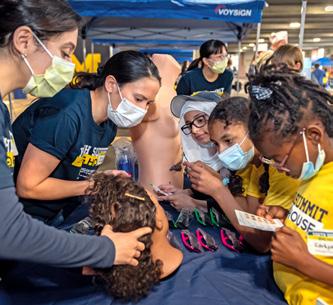 Dermatology residents, faculty, and U-M medical students at the Youth Summit at the Big House
Dermatology residents and faculty at the Migrant Farm Worker Clinic
Dermatology residents, faculty, and U-M medical students at the Youth Summit at the Big House
Dermatology residents and faculty at the Migrant Farm Worker Clinic
In fiscal year 2022, dermatology research faculty received 6 new NIH grants, 20 new nonfederal grants, and co-authored 163 journal publications.
The University of Michigan Department of Dermatology is ranked 11th based on NIH grant awards for dermatology in federal fiscal year 2021 (10/1/2020-09/30/2021).
The Gudjonsson Lab uses multi-omics approaches to investigate the effects of age, genetics, sex, and race on the immune system, and treatment responses, and how genetic risk factors shape the inflammatory network in the skin. A primary goal of this work is to establish a foundation of knowledge to support a personalized medicine approach for the treatment of autoimmune disorders, such as psoriasis, psoriatic arthritis, and lupus. In FY22, Drs. Olesya Plazyo and Mehrnaz Gharaee-Kermani joined the department’s faculty as Research Investigators in the Gudjonsson Lab.
Dr. Gudjonsson is the lead principal investigator (PI) for the Immunogenomics and Systems Biology Core funded by a multi-PI NIH/NIAMS UC2 award (PIs: Gudjonsson, Tsoi, Welch, Zhou), which is part of the Accelerating Medicines Partnership Autoimmune and Immune-Mediated diseases network (AMP-AIM), an international research alliance of government, industry, and non-profit organizations. Dr. Gudjonsson is a co-Lead of the AMPAIM network. He is also a co-Lead PI on a multi-PI CZI Human Cell Atlas grant on Ancestry in the skin. He is the lead PI and director of an NIH-sponsored P30 University of Michigan Skin Biology and Diseases Resource-based Center (UM-SBDRC) and is a PI on a multi-PI NIH-sponsored U01 grant on scent, in addition to several industry-sponsored research grants.

Notable Publications
• Ma F, Hughes TK, Teles RMB, Andrade PR, de Andrade Silva BJ, Plazyo O, Tsoi LC, Do T, Wadsworth MH 2nd, Oulee A, Ochoa MT, Sarno EN, IruelaArispe ML, Klechevsky E, Bryson B, Shalek AK, Bloom BR, Gudjonsson
JE, Pellegrini M, Modlin RL. The cellular architecture of the antimicrobial response network in human leprosy granulomas. Nat Immunol. 2021 Jul;22(7):839-850PMID: 34168371; PMCID: PMC8579511.
• Do TH, Ma F, Andrade PR, Teles R, de Andrade Silva BJ, Hu C, Espinoza A, Hsu JE, Cho CS, Kim M, Xi J, Xing X, Plazyo O, Tsoi LC, Cheng C, Kim J, Bryson BD, O’Neill AM, Colonna M, Gudjonsson JE, Klechevsky E, Lee JH, Gallo RL, Bloom BR, Pellegrini M, Modlin RL. TREM2 macrophages induced by human lipids drive inflammation in acne lesions. Sci Immunol. 2022 Jul 22;7(73):eabo2787. PMID: 35867799; PMCID: PMC9400695.
• Shao S, Chen J, Swindell WR, Tsoi LC, Xing X, Ma F, Uppala R, Sarkar MK, Plazyo O, Billi AC, Wasikowski R, Smith KM, Honore P, Scott VE, Maverakis E, Kahlenberg JM, Wang G, Ward NL, Harms PW, Gudjonsson JE. Phospholipase A2 enzymes represent a shared pathogenic pathway in psoriasis and pityriasis rubra pilaris. JCI Insight. 2021 Oct 22;6(20):e151911. PMID: 34491907; PMCID: PMC8564909.
• Tsoi LC, Hacini-Rachinel F, Fogel P, Rousseau F, Xing X, Patrick MT, Billi AC, Berthier CC, Kahlenberg JM, Lazzari A, Wiegmann H, Ständer S, Piketty C, Julia V, Krishnaswamy JK, Gudjonsson JE. Transcriptomic characterization of prurigo nodularis and the therapeutic response to nemolizumab. J Allergy Clin Immunol. 2022 Apr; 149(4):1329-1339.PMID: 34857395; PMCID: PMC8995330.
The Dlugosz lab is pursuing research to define the functions of deregulated signaling pathways in skin biology and cancer, with a major emphasis on basal cell carcinoma (BCC) and Merkel cell carcinoma (MCC). In 2022, the Dlugosz lab celebrated ground-breaking research featured on the cover of the Journal of Clinical Investigation (Verhaegen, et al. J Clin Invest. 2022;132(7):e152069.). Drs. Verhaegen, Dlugosz and colleagues at U-M, reported the first bona fide mouse model of Merkel Cell Carcinoma (MCC), a rare and aggressive form of skin cancer. This novel genetically-engineered mouse has established the importance of key viral and cellular genes in MCC development and provides a much-needed tool for identifying improved approaches to treatment.
In addition, Drs. Grachtchouk, Dlugosz and colleagues, reported a novel mouse model of basaloid squamous cell carcinoma (BSCC) that demonstrated the central role played by uncontrolled Hh signaling in the pathogenesis of a subset of human BSCCs. (Grachtchouk, et al, Carcinogenesis 42(8):11001109, 2021; PMC8374060). This landmark work points to Hh/GLI2 signaling as a potential therapeutic target, and provides a powerful new tool for probing the mechanistic underpinnings of tumor-associated bone remodeling.
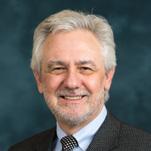
Notable Publications
• Grachtchouk M, Liu J, Hutchin ME, Harms PW, Thomas D, Wei L, Wang A, Cummings D, Lowe L, Garlick J, Sciubba J, Chinnaiyan AM, Verhaegen ME, Dlugosz AA. Constitutive Hedgehog/GLI2 signaling drives extracutaneous basaloid squamous cell carcinoma development and bone remodeling. Carcinogenesis. 2021 Aug 19;42(8):1100-1109. PMID: 34117865; PMCID: PMC8374060
• Harms PW, Verhaegen ME, Hu K, Hrycaj SM, Chan MP, Liu CJ, Grachtchouk M, Patel RM, Udager AM, Dlugosz AA. Genomic evidence suggests that cutaneous neuroendocrine carcinomas can arise from squamous dysplastic precursors. Mod Pathol. 2022 Apr;35(4):506-514. PMID: 34593967; PMCID: PMC8964828.
• Verhaegen ME, Harms PW, Van Goor JJ, Arche J, Patrick MT, Wilbert D, Zabawa H, Grachtchouk M, Liu CJ, Hu K, Kelly MC, Chen P, Saunders TL, Weidinger S, Syu LJ, Runge JS, Gudjonsson JE, Wong SY, Brownell I, Cieslik M, Udager AM, Chinnaiyan AM, Tsoi LC, Dlugosz AA. Direct cellular reprogramming enables development of viral T antigen-driven Merkel cell carcinoma in mice. J Clin Invest. 2022 Apr 1;132(7):e152069. PMID: 35143422; PMCID: PMC8970662.
Dr. Sunny Wong is leading studies that uncover novel insights into skin and hair follicle biology, stem cells and cancer. In FY22, his lab won funding for two NIH NIAMS R01 awards, including a competing renewal for research on sebaceous glands (“Functional characterization of sebaceous gland stem cells and sebocytes in the skin”), as well as a new R01 on ichthyosis (“Exploring hair follicle-associated functions in normal and ichthyotic skin”).

In addition, in June 2022 his lab celebrated a successful Ph.D. thesis defense by graduate student Kenny Trieu (“Understanding Genetic Factors that Modulate HedgehogDriven Skin Cancer”). The Wong lab is generously supported by the NIH, the American Cancer Society, the Leo Foundation, and the Donald and Patricia Roof Cancer Research grant.
• Trieu KG, Tsai SY, Eberl M, Ju V, Ford NC, Doane OJ, Peterson JK, Veniaminova NA, Grachtchouk M, Harms PW, Swartling FJ, Dlugosz AA, Wong SY. Basal cell carcinomas acquire secondary mutations to overcome dormancy and progress from microscopic to macroscopic disease. Cell Reports. 2022 May 3;9(5):110779.
• Zouboulis CC, Coenye T, He L, Kabashima K, Kobayashi T, Niemann C, Nomura T, Oláh A, Picardo M, Quist SR, Sasano H, Schneider MR, Törőcsik D, Wong SY. Sebaceous immunobiology - skin homeostasis, pathophysiology, coordination of innate immunity and inflammatory response and disease associations. Front Immunol. 2022 Nov 10;13:1029818. PMID: 36439142; PMCID: PMC9686445.
• Matsushita Y, Chu AKY, Tsutsumi-Arai C, Orikasa S, Nagata M, Wong SY, Welch JD, Ono W, Ono N. The fate of early perichondrial cells in developing bones. Nat Commun. 2022 Nov 28;13(1):7319. PMID: 36443296.
The Fisher lab is studying the molecular basis of skin aging and the pathogenesis of agerelated diseases resulting from deleterious alterations of the dermal extracellular matrix (ECM) microenvironment, with a focus on the roles of matrix metalloproteinases, CCN family proteins. and YAP/ TAZ as key drivers of the aging process. Investigations of the impact of aging on the phenotype of dermal fibroblasts are ongoing, in collaboration with Drs. Billi, Gudjonsson, and Voorhees.

Supported by a new NIH U01 award from the National Institute on Aging, the Fisher and Dlugosz labs are jointly investigating the cellular and molecular mechanisms that link age-related skin changes to the initiation of skin cancer. Utilizing genetically modified mice that express elevated levels of CCN1 selectively in dermal fibroblasts, this work seeks to define the impact of CCN1-induced accelerated dermal aging on keratinocyte cancer initiation. In addition, the Fisher lab is collaborating with the lab of Dr. John Varga (U-M Rheumatology) in work examining the molecular mechanisms involved in the pathogenesis of cutaneous fibrosis.
Notable Publications
• Wang W, Bale S, Yalavarthi B, Verma P, Tsou PS, Calderone KM, Bhattacharyya D, Fisher GJ, Varga J, Bhattacharyya S. Deficiency of inhibitory TLR4 homolog RP105 exacerbates fibrosis. JCI Insight 7(21):e160684, 2022. PMID: 36136452/PMCID:
PMC9675479
• Xiang Y, Liu Y, Yang Y, Yan Y, Kim AJ, Guo C, Fisher GJ, Quan T. Reduced expression of Collagen 17A1 in naturally aged, photoaged, and UV-irradiated human skin in vivo: Potential links to epidermal aging. J Cell Commun Signal 16(3):421-432, 2022. PMID: 35060094/PMCID: PMC941135
Dr. Lam C. (Alex) Tsoi directs the department’s Center for Cutaneous Bioinformatics (CCB), with research focused on identifying the genetic and genomic components of immune-mediated diseases and understanding their biological effect and contribution to disease heterogeneity. Dr. Tsoi and his team maintain active collaborations with multiple dermatology faculty and researchers across U-M and around the world. Together with colleagues at Michigan Medicine HITS, Dr. Tsoi’s research team launched the “Skin Genes Query” online tool in FY2022 for the UM Skin Biology and Diseases Resource-based Center (UM-SBDRC). Utilizing datasets supplied by UM-SBDRC members, this online resource supports comparison of normal and disease gene expression in human and mouse skin.
A new Immunogenomics and Systems Biology Core (ISCB) at the University of Michigan is supported by NIH/NIAMS UC2 award (PIs: Gudjonsson Tsoi, Welch, Zhou). The ISCB supplies data management, analytics, and disease translation for the Accelerating Medicines Partnership® Autoimmune and Immune-Mediated Diseases Network, an international research alliance of government, industry, and non-profit organizations. This core utilizes multi-omics data and advanced analytical approaches to identify shared and disease-specific biological pathways in rheumatoid arthritis, psoriatic spectrum diseases, and related autoimmune and immune mediated diseases.
• Patrick MT, Li Q, Wasikowski R, Mehta N, Gudjonsson JE, Elder JT, Zhou X, Tsoi LC. Shared genetic risk factors and causal association between psoriasis and coronary artery disease. Nat Commun. 2022 Nov 2;13(1):6565. PMID: 36323703; PMCID: PMC9630428.
• Patrick MT, Bardhi R, Zhou W, Elder JT, Gudjonsson JE, Tsoi LC. Enhanced rare disease mapping for phenome-wide genetic association in the UK Biobank. Genome Med. 2022 Aug 9;14(1):85. PMID: 35945607; PMCID: PMC9364550.

• Tsoi LC, Patrick MT, Shuai S, Sarkar MK, Chi S, Ruffino B, Billi AC, Xing X, Uppala R, Zang C, Fullmer J, He Z, Maverakis E, Mehta NN, Perez White BE, Getsios S, Helfrich Y, Voorhees JJ, Kahlenberg JM, Weidinger S, Gudjonsson JE. Cytokine responses in nonlesional psoriatic skin as clinical predictor to anti-TNF agents. J Allergy Clin Immunol. 2022 Feb;149(2):640-649.e5. Epub 2021 Jul 31. PMID: 34343561; PMCID: PMC9451046.
• Patrick MT, Stuart PE, Zhang H, Zhao Q, Yin X, He K, Zhou XJ, Mehta NN, Voorhees JJ, Boehnke M, Gudjonsson JE, Nair RP, Handelman SK, Elder JT, Liu DJ, Tsoi LC. Causal Relationship and Shared Genetic Loci between Psoriasis and Type 2 Diabetes through Trans-Disease Meta-Analysis. J Invest Dermatol. 2021 Jun;141(6):1493-1502. Epub 2020 Dec 30. PMID: 33385400; PMCID: PMC8154633
The Elder lab continues to advance our understanding of the genetic factors that underlie immune-mediated disorders such as psoriasis and psoriatic arthritis. Utilizing sophisticated analytical methods, they have collaborated with colleagues at Michigan and around the world to explore these disorders, yielding new insights into the molecular pathophysiology of these inflammatory diseases. Supported by NIH R01 awards, the lab recently published a transethnic genome-wide association study (GWAS) of psoriasis, emphasizing the genetic similarity of psoriasis in individuals of European and South Asian origin, and providing the most detailed analysis to date of psoriasis genetic signals in the Major Histocompatibility Complex.
Working with Drs. Matthew Patrick and Lam Tsoi, Dr. Elder’s lab is also using a genetic technique called Mendelian Randomization to look for causal relationships between psoriasis and coronary artery disease, diabetes, obesity, periodontitis, and COVID-19. Working with colleagues at King’s College London and across the US and Europe, a publication reporting the largest GWAS of psoriasis to date is nearing completion, identifying 178 independent psoriasis genetic signals.
Dr. Elder is also collaborating with Drs. Dafna Gladman (University of Toronto) and Qing-Sheng Mi (Henry Ford Health System) on research exploring the mechanisms by which the IL23R gene contributes to the pathogenesis of psoriatic arthritis. This work aims to identify biomarkers in patients with cutaneous psoriasis for the development of psoriatic arthritis. A long-term goal of this work is to integrate these biomarkers into a clinically useful tool using machine learning for identification of psoriatic arthritis.
• Luo Y, Kanai M, Choi W, Li X, Sakaue S, Yamamoto K, Ogawa K, Gutierrez-Arcelus M, Gregersen PK, Stuart PE, Elder JT, et al. A highresolution HLA reference panel capturing global population diversity enables multi-ancestry fine-mapping in HIV host response. Nat Genet. 2021 Oct;53(10):1504-1516. Erratum in: Nat Genet. 2021 Nov 2; PMID: 34611364; PMCID: PMC8959399.
• Zhang Z, Elder JT. Making Lemonade: Putting the Wisdom of the Genome to Work in Atopic Dermatitis. J Invest Dermatol. 2021 Nov;141(11):2561-2564. PMID: 34688407; PMCID: PMC8594458.
• Stuart PE, Tsoi LC, Nair RP, Ghosh M, Kabra M, Shaiq PA, Raja GK, Qamar R, Thelma BK, Patrick MT, Parihar A, Singh S, Khandpur S, Kumar U, Wittig M, Degenhardt F, Tejasvi T, Voorhees JJ, Weidinger S, Franke A, Abecasis GR, Sharma VK, Elder JT. Transethnic analysis of psoriasis susceptibility in South Asians and Europeans enhances fine-mapping in the MHC and genomewide. HGG Adv. 2022 Jan 13;3(1):100069. PMID: 34927100; PMCID: PMC8682265.
• Patrick MT, Li Q, Wasikowski R, Mehta N, Gudjonsson JE, Elder JT, Zhou X, Tsoi LC. Shared genetic risk factors and causal association between psoriasis and coronary artery disease. Nat Commun. 2022 Nov 2;13(1):6565. PMID: 36323703; PMCID: PMC9630428.
• Patrick MT, Zhang H, Wasikowski R, Prens EP, Weidinger S, Gudjonsson JE, Elder JT, He K, Tsoi LC: Identification of relationship between COVID-19 and skin conditions through epidemiology and genomic studies. JACI 147(3):857-869, 2021. PMID: 33485957, PMCID:PMC782503
• Martin S, Tyrrell J, Thomas EL, Bown MJ, Wood AR, Beaumont R, Tsoi LC5, Stuart PE, Elder JT, Law P, Houlston R, Kabrhel C, Papadimitriou N, Gunter M, Vincent EE, Bell JD, Frayling TM, Yaghootkar H: Disease consequences of higher adiposity uncoupled from its adverse metabolic effects using Mendelian Randomization. eLife 2022 Jan 25;11:e72452. PMCID:PMC8789289
• Baurecht H, Freuer D, Welker C, Tsoi LC, Elder JT, Ehmke B, Leitzmann MF, Holtfreter B, Baumeister SE. Relationship between periodontitis and psoriasis: A two-sample Mendelian randomization study. J Clin Periodontol. 2022 Jun;49(6):573-579. PMID: 35362630; PMCID: PMC9117489.
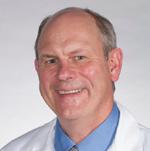
In FY22, Allison C. Billi, MD, PhD, recruited Vincent van Drongelen, PhD, to join her growing lab. Dr. Billi leads research focusing on understanding immunological and genetic mechanisms of inflammatory skin disorders, with a special interest in sex-biased autoimmune disease. Using mouse modeling of complex human disease, systems biology applications and approaches for study of cutaneous and systemic immunology, the Billi lab is examining how the female-biased factor VGLL3 drives autoimmune disease in the skin of women and exploring whether this pathway could underlie the balance of female-biased autoimmunity and male-biased susceptibility to infection and neoplasm. Dr. Billi’s translational work is the product of close collaboration with a team of dermatologists, rheumatologists, and computational scientists at Michigan Medicine and academic institutions throughout the U.S..
Dr. Billi’s program of research is supported in part by NIH/NIAMS 5K08AR07825 “Mechanisms of sex discrepancy in autoimmune disease: Regulation of the female-biased VGLL3 immune pathway”.
Notable Publications
• Billi AC, Ma F, Plazyo O, Gharaee-Kermani M, Wasikowski R, Hile GA, Xing X, Yee CM, Rizvi SM, Maz MP, Berthier CC, Wen F, Tsoi LC, Pellegrini M, Modlin RL, Gudjonsson JE, Kahlenberg JM. Nonlesional lupus skin contributes to inflammatory education of myeloid cells and primes for cutaneous inflammation. Sci Transl Med. 2022 Apr 27;14(642):eabn2263. PMC9169615.
• Shao S, Billi AC, Gudjonsson JE. Dynamic manifestation of autoimmune diseases in skin-cytokine hubs and paradoxic reactions. J Allergy Clin Immunol. 2022 Jan;149(1):45-47. PMID: 34838585.
• Dunlap GS, Billi AC, Xing X, Ma F, Maz MP, Tsoi LC, Wasikowski R, Hodgin JB, Gudjonsson JE, Kahlenberg JM, Rao DA. Single-cell transcriptomics reveals distinct effector profiles of infiltrating T cells in lupus skin and kidney. JCI Insight. 2022 Apr 22;7(8):e156341. PMC9089784.
• Xing E, Billi AC, Gudjonsson JE. Sex Bias and Autoimmune Diseases. J Invest Dermatol. 2022 Mar;142(3 Pt B):857-866. PMID: 34362556.
PCRiD grew steadily during FY22, adding new studies, new staff and new training opportunities. To benefit patients in need of novel treatments not yet publicly available, we focused on expanding pharmaceutical-sponsored drug trials to add new disease states, such as cutaneous lupus and bullous pemphigoid. Working closely with the U-M Clinical Trials Support Unit, Office of Contract Administration, and IRB, we streamlined the study startup process, reducing this time to as little as four months from previously sometimes requiring more than a year. We continue to discuss ways to improve our clinical research processes with these groups.
In January 2022, Kathryn Fahlstrom, PA-C joined PCRiD bringing remarkable experience from her work in dermatology private practice to her role as research coordinator. Kathryn has been especially successful in recruiting patients for our various studies and has been crucial to coordinating many of our clinical trials.
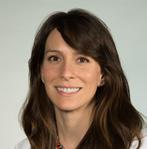
Dr. Mio Nakamura, director of PCRiD, has worked to enhance training opportunities in PCRiD, including restructuring resident participation and increasing opportunities for medical student involvement in clinical research. In July 2022, Dr. Rachel Greene became PCRiD’s first Duncan O. and Ella M. Poth Fellow in Dermatology. Dr. Greene is gaining experience in conducting all aspects of clinical research. As subinvestigator, she sees research patients for various clinical trials and is a great asset to our program. Dr. Greene graduated from Saint Louis University School of Medicine and completed her internship in general surgery at MedStar Georgetown University Hospital. She will be applying for dermatology residency in 2023.
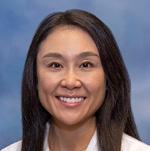
The University of Michigan Skin Biology and Diseases Resource-based Center (UM-SBDRC) is supported by a Center Grant (P30) funded by the National Institutes of Health (NIH), National Institute of Arthritis and Musculoskeletal and Skin Diseases (NIAMS). The Center, which was in its third year of funding during FY22, aims to facilitate independently funded research in skin biology and disease; to foster the development of team science, to combine big-data approaches with functional studies in cell culture and genetically engineered mouse models; and to attract additional investigators into cutaneous research relevant to the NIAMS mission. The UM-SBDRC research community comprises 64 members from 24 areas of expertise in multiple schools and colleges at the University of Michigan, from the NIH and outside institutes and universities throughout the United States.
The U-M SBDRC Mentoring program continued to promote career success for members, supporting investigators and trainees at all stages of their careers.
In Year 3, there were 7 Center mentees who participated in our program. Mentorship Program initiatives inlcuded:
• Established individual development plans for mentees
• Partnered with T32 leadership to provide SID practice
talk feedback
• Ran a career development focused seminar covering guidelines for promotion/advancement, navigating academia, and mentorship
Due to Covid-19, past years funds for travel awards have accumulated and this year’s travel awards included 7 Society for Investigative Dermatology memberships and travel to their Annual Meeting and 1 registration to present at and attend the American College of Rheumatology Convergence meeting.
Attendance at the Society for Investigative Dermatology annual meeting or the American College of Rheumatology Convergence meeting provides early career scientists with an invaluable learning and training experience, as well as exposure to a breadth of research in cutaneous biology and disease.
Masanori Matsumoto, PhD, Department of Pathology, University of Michigan Medical School: “Understanding the role of neutrophil type I interferon signaling in S. aureus-induced skin inflammation”
Pei-Suen (Eliza) Tsou, PhD, Department of Internal Medicine (Rheumatology), University of Michigan Medical School: “CaMKII in scleroderma fibrosis”
Olesya Plazyo, PhD, Department of Dermatology, University of Michigan Medical School: “Characterizing the role of IL-7 signaling in SLE”
Tom Kerppola, PhD, Biological Chemistry, University of Michigan Medical School: “The roles of Keap1 moderation of cytokine transcription in the modulation of inflammatory responses in mouse dermal fibroblasts and skin”
Lisa Abernathy-Close, PhD, Department of Internal Medicine (Rheumatology), University of Michigan Medical School: “Molecular and Functional Characterization of Type I IFN-educated Fibroblasts Enriched in Lupus Skin”
Claudia Loebel, MD, PhD & Brendon Baker, PhD, Biomedical Engineering, University of Michigan: “Lineage-specific ECM labeling in skin fibrosis models”
The Skin Biology and Diseases Resource-based Center hosted its 3rd Annual Symposium on March 3, 2022. Held as a hybrid event, faculty, trainees, and research staff attended either in-person at Danto Auditorium or virtually via Zoom.
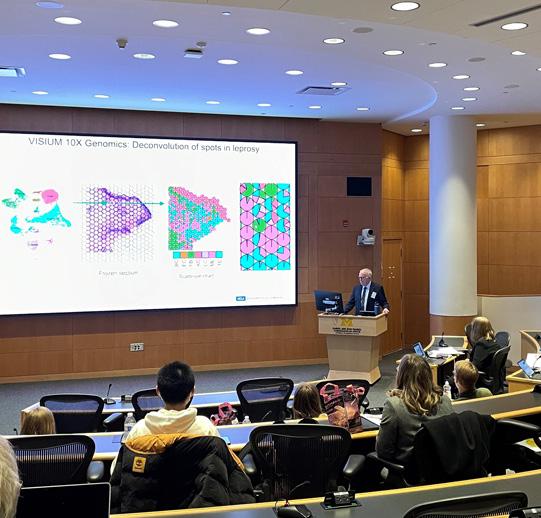
Robert L. Modlin, M.D. (pictured right), delivered the keynote address on “Acne: A Disease of Lipid Metabolism.” Dr. Modlin is the Klein Professor of Dermatology in the Division of Dermatology, and Professor of Microbiology, Immunology and Molecular Genetics, at the David Geffen School of Medicine at UCLA.
Masanori Matsumoto, PhD, Department of Pathology, University of Michigan Medical School: “Sensing and Reacting to Staphylococcus Aureus in the Skin”
Pantelis Rompolas, PhD, Department of Dermatology, University of Pennsylvania Perelman School of Medicine: “Heterogeneity and regulation of stem cells in stratified epithelia”
Terry Lechler, PhD, Departments of Dermatology and Cell Biology, Duke University School of Medicine: “Epithelial Morphogenesis and Differentiation”
Vicky Werth, MD, Department of Dermatology, University of Pennsylvania Perelman School of Medicine: “Dermatomyositis: New Insights into Disease Mechanisms”
The UM-SBDRC SkinGen website allows for skin gene queries that support comparison of normal and disease gene expression in human and mouse skin utilizing datasets supplied by SBDRC members. This site was demonstrated at the UM-SBDRC Annual Symposium on March 3, 2022 and became operational and available during grant year 4.
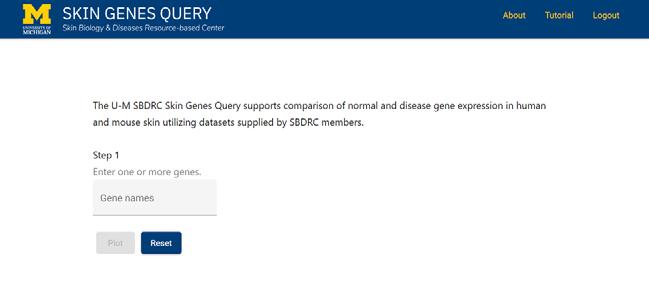
Philanthropy supports a collaborative, productive, and hopeful research, education, and clinical environment. We are pleased to announce two new prestigious named lectureships, and excited to share information about the John J. Voorhees, M.D. Legacy Professorship Campaign
Charles N. Ellis, MD, Professor Emeritus, joined the faculty of the Department of Dermatology in 1981, upon completion of his bachelors, medical degree, and postdoctoral training at the University of Michigan Medical School. After many years outstanding service to the department as a clinician, educator, and researcher, and numerous lauded positions, Dr. Ellis officially retired from U-M Dermatology on June 30, 2018. However, he has remained an active emeritus faculty in every sense of the word. He continues his service as an educator and physician at the Ann Arbor Veteran’s Affairs Healthcare System (AA-VAHS). Dr. Ellis has chosen to continue his service and dedication to the department in the form of a named lectureship. Dr. Kevin Cooper delivered the inaugural Charles N. Ellis, MD, Lectureship for Resident Education in Clinical Dermatology on October 14, 2022, during the 2022 Fall Alumni Reunion Weekend. Dr. Cooper spoke on “Mycosis Fungoides and Sezary Syndrome: Features and Bugs.”

A special thank you to Dr. and Mrs. Jeffrey P. and Susan M. Callen for their endowed Lectureship in Cutaneous Medicine. Dr. and Mrs. Callen’s generous donation to the department will ensure the opportunity for residents, faculty, and medical students to benefit from an annual invited lecture in cutaneous medicine, with a specific focus on Medical Dermatology, for many years to come. Dr. Callen completed his medical training and residency at the University of Michigan, and is currently the Chief of the Division of Dermatology and the Lafayette G. Owen, MD, Endowed Chair of Dermatology at the University of Louisville School of Medicine. We look forward to the inaugural lectureship in the fall of 2023.
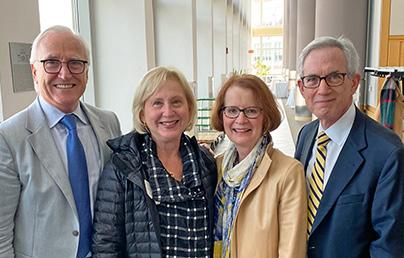 Left to right: Dr. Kevin Cooper, Mrs. Robin Cooper, Mrs. Julie Ellis, Dr. Charles Ellis
Left to right: Dr. Kevin Cooper, Mrs. Robin Cooper, Mrs. Julie Ellis, Dr. Charles Ellis
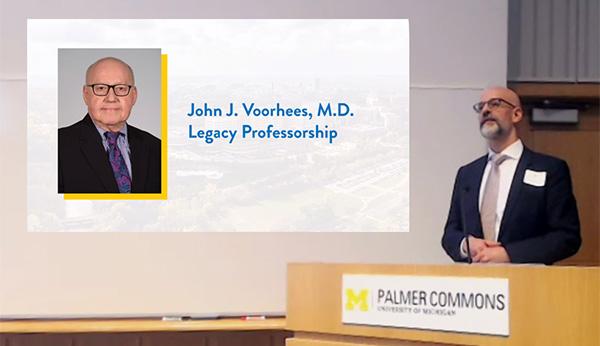
In October 2018, Dr. Voorhees stepped down as Department Chair following more than 43 years of outstanding service and leadership. Dr. Voorhees led the department through myriad changes, guiding its ascent as a nationally and internationally recognized dermatology department in academic medicine.
We are very pleased to announce fundraising efforts to establish the John J. Voorhees, M.D. Legacy Professorship in Dermatology. This professorship will honor Dr. John Voorhees, Duncan and Ella Poth Distinguished Professor of Dermatology, a renowned dermatologist, physician-scientist, and mentor.
We invite the support of all past trainees, colleagues, and friends to help make this professorship a reality and are asking for your help to reach our $500,000 goal to establish this Legacy Professorship. Those interested in contributing to this fund may contact our development officer at 734-763-0873 for further information.
Dr. Voorhees qualified as MD summa cum laude from the University of Michigan in 1963, followed by internship and residency in Internal Medicine and Dermatology, also at the University of Michigan, including two years of postdoctoral training as the American Dermatological Association Carl Herzog Fellow in Biochemistry. He was initially appointed in 1969, and in 1975 was appointed Chair of the UM Department of Dermatology.
Dr. Voorhees’ pioneering research has shaped our understanding of the dermatologic world. In particular, he was key in shaping our understanding of psoriasis as an immune-mediated disease, and developed our understanding of the extracellular matrix in aging and photodamaged skin. Throughout his illustrious career he has received many national and international awards honoring his contributions to the field of dermatology, and has delivered prestigious named lectureships throughout the world. Dr. Voorhees has served as the President of the Michigan Dermatological Society, Association of Professors of Dermatology, Dermatology Foundation, Society for Investigative Dermatology, and American Dermatological Association; he is the honorary member of 15 foreign dermatological societies. He has served on the editorial boards of eight scholarly journals; he is or has been on the editorial board of eight scholarly journals and has authored more than 716 full publications. With over 64,000 citations, he has been twice recognized as the most cited author in the field of dermatology in the world.
Currently, Dr. Voorhees divides his time among medical research focused on psoriasis and aging skin, and education of residents, medical students, and faculty.
If you would like to make a gift to the professorship, we invite you to visit our Leaders & Best giving page by scanning the QR code with your smartphone.
For additional information or questions, please contact us at derm-giving@umich.edu.

After a hiatus of two years, we were thrilled to host our Department of Dermatology Alumni Reunion at the American Academy of Dermatology Annual Meeting in Boston on Saturday, March 26, 2022.
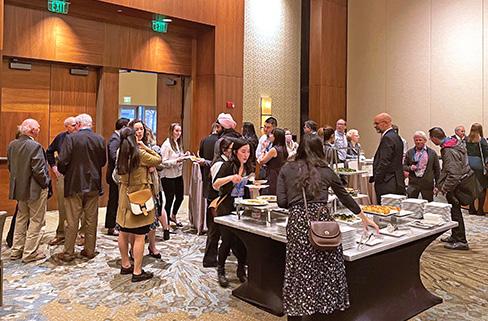
Alumni and current faculty and house officers gathered to catch up with friends and colleagues, make new connections, and enjoy cocktails and hors d’oeuvres.
We hope to see you in New Orleans!
Our 2023 Department of Dermatology Alumni Reunion at the American Academy of Dermatology Annual Meeting in New Orleans will be held the evening of Saturday, March 18, 2023. Keep an eye out for our email invitation!
We held our first Department of Dermatology Fall Alumni Reunion and Symposium on October 14-15, 2022. We enjoyed seeing so many gather in Ann Arbor to connect with fellow alumni, faculty, and house officers throughout the weekend.
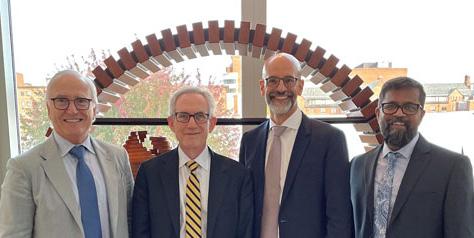
At Friday’s symposium, Kevin D. Cooper, MD professor and Henry P. Junod Jr. Chair in Dermatology at Case Western Reserve University delivered the inaugural Charles N. Ellis, M.D. Lecture for Resident Education in Clinical Dermatology. Special guest, Dr. Rogério Pinto, PhD, associate dean for research, U-M School of Social Work, presented interdisciplinary artistic research that aims to undo racism and colorism. Several U-M dermatology faculty members presented on a variety of departmental efforts in patient care, research, and education.
At our pregame tailgate on Saturday morning, we gathered to laugh and share memories with delicious refreshments from Zingerman’s. At the Big House, the Wolverines capped off a wonderful reunion weekend with their decisive win over the Penn State Nittany Lions.
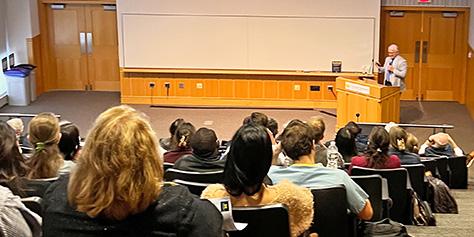 Top photo left to right: Drs. Kevin Cooper, Charles Ellis, Chris Bichakjian, Trilokraj Tejasvi Bottom photo: Dr. Kevin Cooper presenting at our symposium
Top photo left to right: Drs. Kevin Cooper, Charles Ellis, Chris Bichakjian, Trilokraj Tejasvi Bottom photo: Dr. Kevin Cooper presenting at our symposium
Jordan B. Acker, Michael J. Behm, Mark J. Bernstein, Paul W. Brown, Sarah Hubbard, Denise Ilitch, Ron Weiser, Katherine E. White, Santa J. Ono (ex officio)
The University of Michigan, as an equal opportunity/affirmative action employer, complies with all applicable federal and state laws regarding nondiscrimination and affirmative action. The University of Michigan is committed to a policy of equal opportunity for all persons and does not discriminate on the basis of race, color, national origin, age, marital status, sex, sexual orientation, gender identity, gender expression, disability, religion, height, weight, or veteran status in employment, educational programs and activities, and admissions. Inquiries or complaints may be addressed to the Senior Director for Institutional Equity, and Title IX/Section 504/ADA Coordinator, Office for Institutional Equity, 2072 Administrative Services Building, Ann Arbor, Michigan 48109-1432, 734763-0235, TTY 734-647-1388, institutional.equity@umich.edu. For other University of Michigan information call 734-764-1817.
Produced by the University of Michigan Department of Dermatology
Mailing Address
University of Michigan Department of Dermatology
1910 Taubman Center 1500 E. Medical Center Drive
Ann Arbor, MI 48109-5314
Visit us online at: medicine.umich.edu/dept/dermatology
